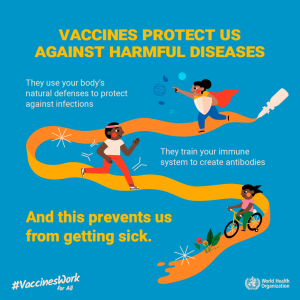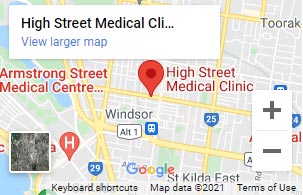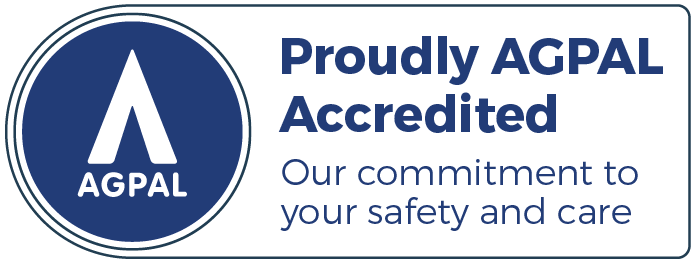September is an important month for men’s health—Prostate Cancer Awareness Month.
While raising awareness, the Prostate Cancer Awareness Month message is: early prostate cancer rarely demonstrates symptoms, so get screened and get in the know.
The medical professionals practising at High Street Medical Clinic have offered their knowledge on seven things that you should know in order to better understand this serious, yet highly treatable disease.
ONE: Who’s at risk of prostate cancer?
Men over the age of 45, especially those over 65, are at a higher risk.
Other risk factors may include a diet high in saturated fats, obesity, and regular consumption of red meat, especially when cooked at high temperatures. Minimal exercise or physical activity is also known to be a possible contributing factor.
Exposure to certain chemicals and toxins in the workplace, such as cadmium, may be associated with risk too.
Family history also plays a role, particularly if close relatives have had prostate cancer.
Of course, smoking is a major contributor, with men who smoke having a significantly higher risk of prostate cancer when compared to non-smokers.
TWO: Early detection MASSIVELY improves treatment
According to the Prostate Cancer Foundation of Australia, in Australia, five-year relative survival for prostate cancer diagnosed at Stage I is 100%. The survival rate for Stage 4 cancers is just 36.4%.
The higher the stage, the more the cancer has spread.
This highlights the fact that it’s important to get screened, which brings us to number three.
THREE: Prostate cancer screening
Diagnosing prostate cancer typically has three different exams:
- PSA testing: the prostate makes an antigen; if this is detected in large numbers, it may indicate prostate cancer or other prostate problems
- DRE: digital rectal exam, the doctor feels for enlargement and irregularities of the prostate
- Biopsy: Tissue samples are taken from the prostate and tested for the presence of cancer
Choosing prostate cancer screening exams is based on professional advice per your individual circumstances, which include lifestyle factors and age.
FOUR: The symptoms
In its early stages, prostate cancer may not cause noticeable symptoms, which again highlights how important regular exams are.
When symptoms do occur, they can include difficulty urinating, blood in the urine or semen, and frequent urination, among others.
Other symptoms include:
- Erectile Dysfunction: Prostate cancer and its treatments, such as surgery and radiation therapy, can sometimes lead to ED
- Pain: Advanced prostate cancer can cause pain in the lower back, hips, or pelvis. This pain may be due to the cancer spreading to nearby bones.
- Weight Loss and Fatigue: In some cases, especially when the cancer has advanced, unexplained weight loss and fatigue can occur
FIVE: Treatment options
Like many forms of cancer, there are a number of treatments and paths to treatment.
This varies depending on the stage and aggressiveness of the cancer.
Options may include:
- Active surveillance
- Surgery
- Radiation therapy
- Hormone therapy
- Chemotherapy
- Immunotherapy
The good news is that prostate cancer is highly treatable, especially when detected at an early stage. Many men with prostate cancer live long and healthy lives after treatment.
SIX: Prevention
While it’s not always possible to completely prevent prostate cancer, a healthy lifestyle can lower your risk.
This includes maintaining a healthy and balanced diet while limiting the consumption of red and processed meats.
Staying physically active, maintaining a healthy weight and avoiding smoking and vaping can also reduce risk.
Regular check-ups with health professionals help detect prostate cancer in its early stages when it’s most treatable.
Proactive lifestyle choices and regular healthcare consultations can contribute significantly to prostate cancer prevention and early detection.
SEVEN: Support
Prostate cancer is a complex condition, and the right support can empower you to make informed decisions about prevention, screening, and treatment, should the need arise.
High Street Medical Clinic offers a range of men’s health services that all come together to support men and help ensure their good health.
If you’ve been questioning your health, are concerned about something or it’s been a while since your last check-up, book an appointment with us.
There are many resources available to further educate Australians on prostate cancer, here are a few:
In summary
As with all forms of cancer, information and education around the disease can help raise awareness of symptoms, important lifestyle changes and screenings.
With the high treatment success rates, screening availability and accessibility and education around prevention, a lot can be done in support of men in our community.
If you’re due for a screening or a check-up, get in touch with us today.












